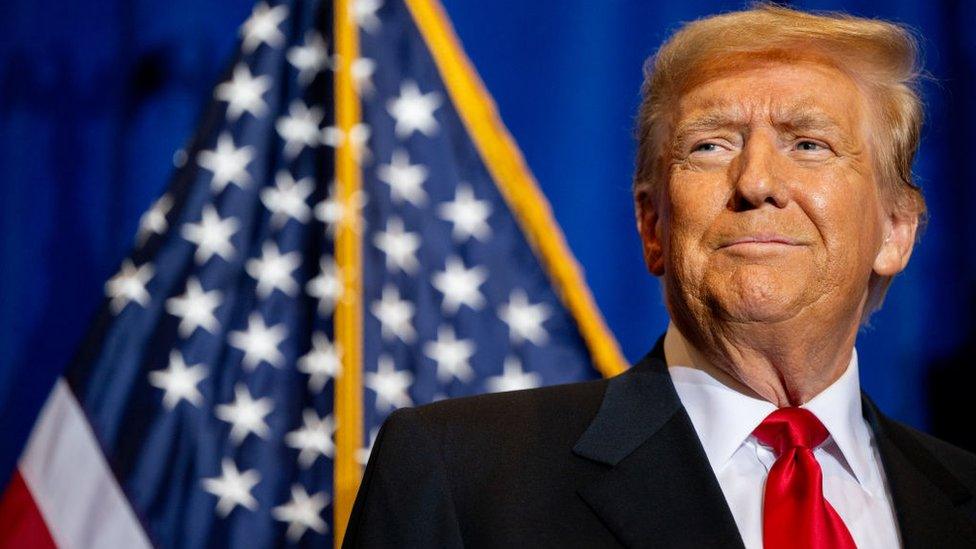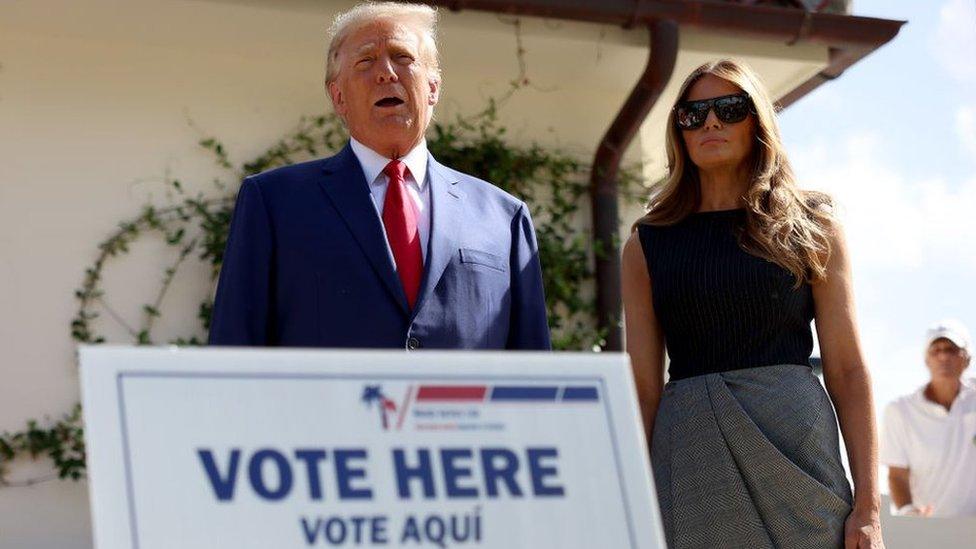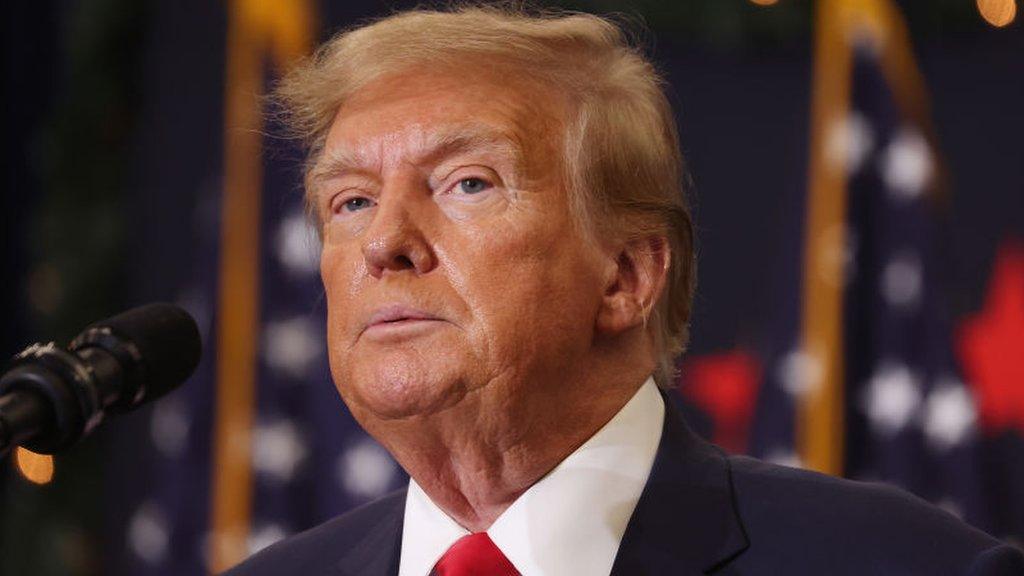Maine's top court delays verdict on Donald Trump ballot appeal
- Published

A Maine judge has delayed ruling on whether Donald Trump can appear on the state's presidential primary ballot until the Supreme Court decides on a similar case in Colorado.
Mr Trump was removed from the ballot in both states, with officials citing the 14th Amendment's insurrection clause.
But the US's top court announced earlier this month that it would hear his appeal against the bans.
Justices in Washington will hear arguments in the case on 8 February.
The 14th Amendment excludes anyone who has "engaged in insurrection or rebellion" from holding federal office, but the former president's lawyers argue that the provision does not apply to the president.
Judge Michaela Murphy of Maine's superior court wrote in the 17-page filing on Wednesday that Secretary of State Shella Bellows' decision to remove Mr Trump from the primary ballot should remain on hold until there is federal level clarification on state's roles.
Judge Murphy said that "unless the Supreme Court before that date finds President Trump disqualified to hold the office of president, eligible Maine voters who wish to cast their vote for him in the primary will be able to do so, with the winner being determined by ranked-choice voting".
The filing added "while it is impossible to know what the Supreme Court will decide, hopefully it will at least clarify what role, if any, state decision-makers, including secretaries of state and state judicial officers, play in adjudicating claims of disqualification brought under Section Three of the 14th Amendment."
Maine's primary election will take place on 5 March, also known as Super Tuesday. Some 16 states and territories will vote that day.
Announcing her decision to remove Mr Trump from the ballot last month, Ms Bellows called the events of 6 January 2021 "unprecedented and tragic".
They were an attack not only upon the Capitol and government officials, but also an attack on the rule of law," she wrote. "The evidence here demonstrates that they occurred at the behest of, and with the knowledge and support of, the outgoing President. The US Constitution does not tolerate an assault on the foundations of our government, and Section 336 requires me to act in response."
But lawyers for Mr Trump have sought to argue that the measures do not apply to the presidency and have contested that he engaged in insurrection.
They have also sought to argue that Ms Bellows, a progressive Democrat, is biased against the former president.
In their 11-page appeal to the Maine Superior Court, Mr Trump's team said the secretary of state was "a biased decision maker who should have recused herself and otherwise failed to provide lawful due process".
Watch: Maine's top election official explains why she removed Trump from ballot
Related topics
- Published8 February 2024

- Published4 January 2024
